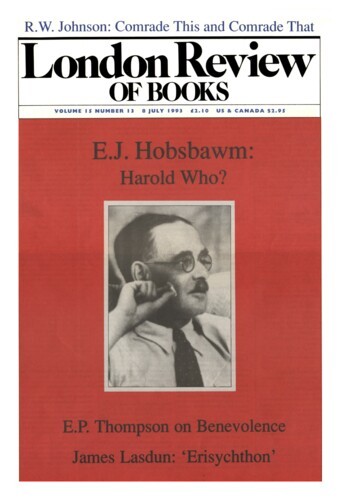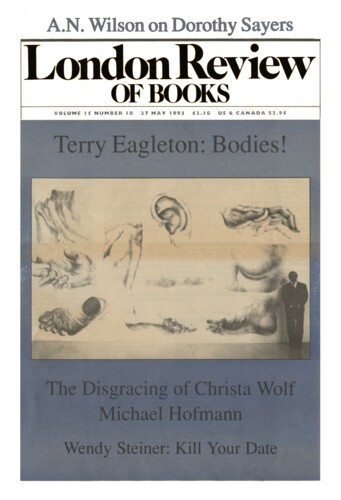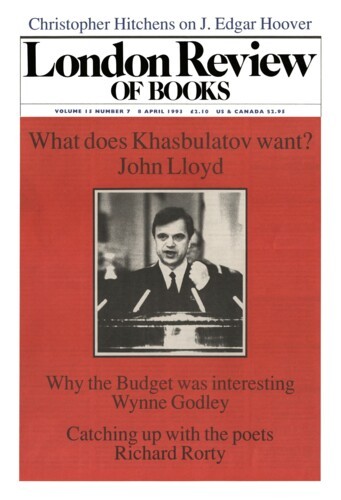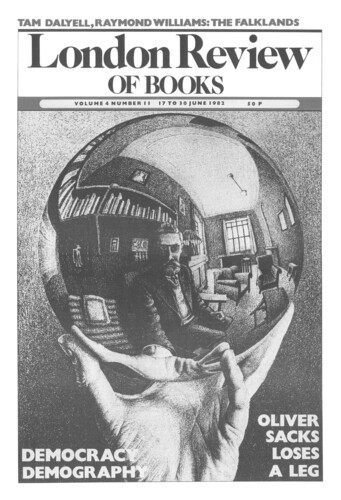First-Class Fellow Traveller
Terry Eagleton, 2 December 1993
Stalinist, alcoholic, sexually ambivalent, Patrick Hamilton had all the prerequisites of a successful Thirties writer. That his success was uneven would seem simply another sign of the times, the mark of an epoch grimly wedded to failure. His work was praised by Greene, Priestley, Lessing, Powell; but If he survives today it is for a couple of memorably macabre dramas – Rope and Gaslight – which Hamilton himself scorned as callow sensationalism. Rope, a savage homo-erotic farce by Orton out of Wilde, made his name and fortune, and was filmed without cuts by Hitchcock in a celebrated cinematic experiment. Gaslight, first performed in 1939, is a spooky tale of patriarchal paranoia which the sexual politicians of our time have yet to catch up with. But though several of Hamilton’s sub-Dickensian novels sold widely at the time, only a meagre clutch them (Hangover Square, Slaves of Solitude, Mr Stimpson and Mr Gorse) have survived in contemporary editions; and by the Fifties their author was hurtling towards spiritual skid-row, plagued by the dipsomania which killed him in 1962.’





